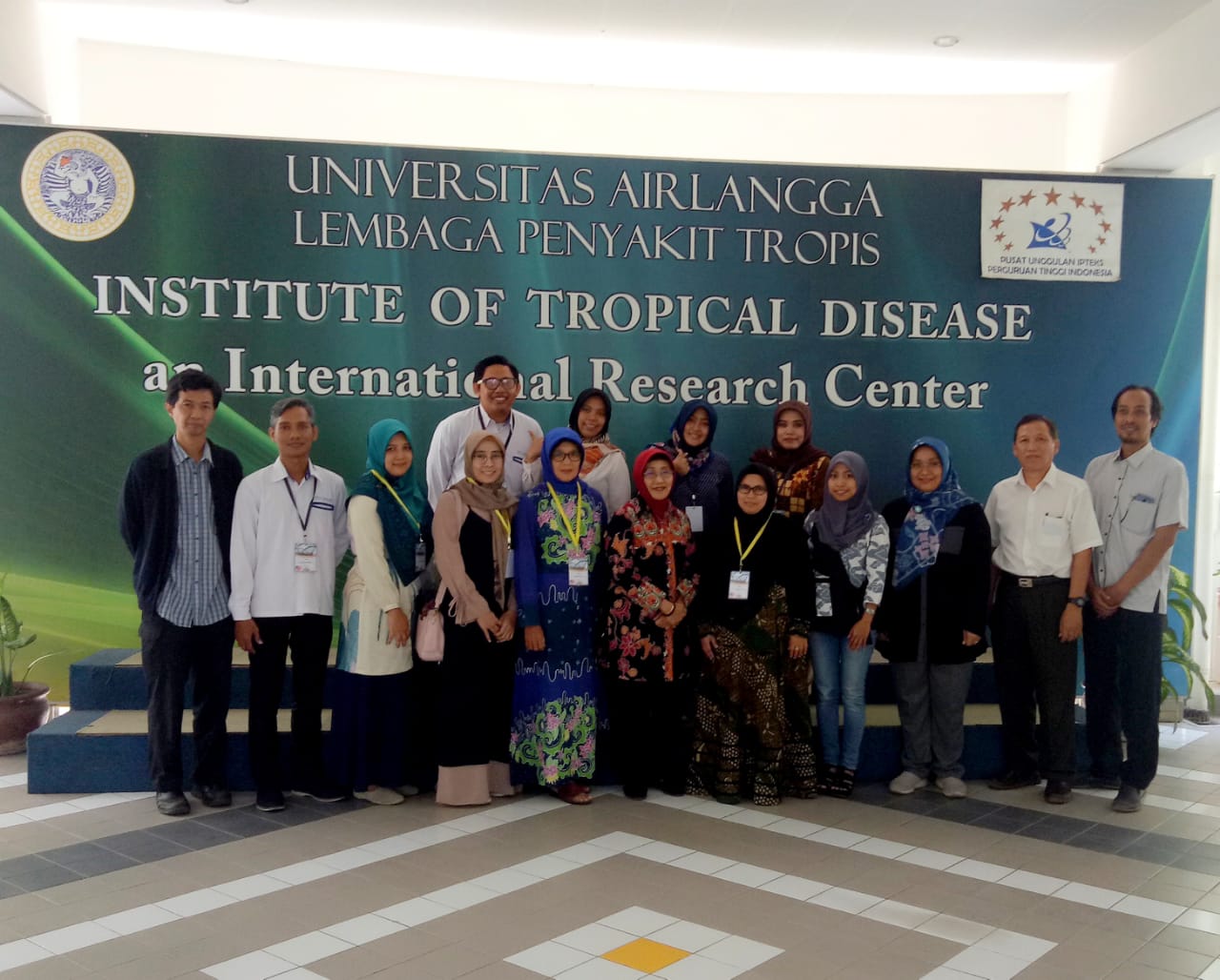UNAIR NEWS – Institute of Tropical Disease (ITD) Universitas Airlangga (UNAIR) continuously hold workshops for students, researchers, and practitioners. Last week, was Gastroenteritis Laboratory and Hepatitis Laboratory held a workshop, Basic and Molecular Technique on Bacteriology: Sequence Analysis of Carbapenemase Genes in Bacteria. The activity was held on Wednesday, October 16 to Friday, October 18.
Interviewed during the event, the workshop chairman, Dr. Dadik Raharjo, drh., M. Kes., explained that the activity was focused on learning basic molecular biology techniques to observe the presence of specific genes in bacteria. The aim is to detect the danger of these bacteria associated with pathogenicity and their resistance to antibiotics. Some ITD researchers were also invited to support the workshops.
“We invited some of the researchers to provide material such as Prof. Retno Handayani, dr., MS., Ph.D and myself. While practical activities in the laboratory are carried out by supervision and other researchers from the Gastroenteritis Laboratory and the Hepatitis Laboratory. On that occasion, we would like to share experiences in identifying bacteria with carbapenemase gene, “said the lecturer in Faculty of Veterinary Medicine.
Carbapenemase is a type of β-lactamase enzyme with the ability to hydrolyze the antibiotics of penicillin, cephalosporin, monobactam, and carbapenem classes. Bacteria that produce β-lactamase can cause infections that are difficult to treat because they make many antibiotics with active β-lactam ingredients ineffective.
“This workshop was held in collaboration with the Gastroenteritis Laboratory working in bacterial culture, resistance testing, and gene detection in bacteria by PCR technique while the Hepatitis Laboratory led by Prof. Soetjipto, dr. MS., Ph.D, has extensive experience in molecular biology with one of its technologies which is sequencing. This is done so that participants can get a complete insight, “explained Dr. Dadik.
About seven workshop participants were guided from the most basic techniques to the sequencing stage along with the analysis of sequencing results. The workshop is expected to improve the ability of participants to apply the PCR method and sequencing as part of technology in molecular biology. Besides, Dr. Dadik hoped that there will be more academic interested in this field.
“Because, molecular biology is related in every basic life and has broad functions, including infectious diseases, vaccine development, antibiotic production, food products, bioenergy production, protein production, cloning technology, CRISPR-based chromosome editing technology, and halal products,” stated Dr. Dadik (*)
Author: Nabila Amelia
Editor: Khefti Al Mawalia





